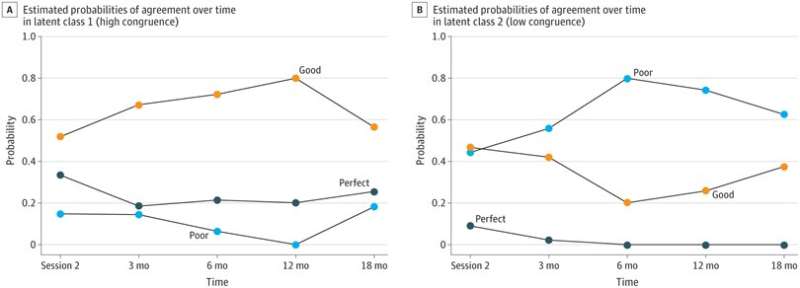Advance care planning for adolescents with cancer

In a recently published study in JAMA Network Open, University of Minnesota researchers and colleagues say adolescents with cancer deserve a voice in medical decisions made for and about them.
"Adolescents with cancer should be given the opportunity to participate in their own medical decision-making," said co-author Jennifer Needle, MD, MPH, faculty in the Center for Bioethics and an associate professor in the Department of Pediatrics in the Medical School. "This should include preferences about whether or not they want aggressive life-sustaining treatment if their cancer, or its treatment, causes severe complications. A guided conversation between the adolescent and their parent or surrogate reduces the discomfort that comes with these conversations, and provides the opportunity for ongoing communication between the patient, parent, and health care team."
This longitudinal adolescent advance care planning study is the largest study to date of the validated Family-Centered Advance Care Planning intervention for Teens with Cancer (FACE-TC), which provides adolescents with cancer and their families the opportunity to have challenging conversations about difficult subjects with a conversation guided by a trained interventionist.
The study participants included 252 adolescents and family members, which is the largest randomized control trial of advance care planning for adolescents with cancer ever conducted. It measured concordance between the adolescents and their parent/surrogate over 18 months in their understanding of the adolescents' preference for aggressive medical treatment, documented in a "Statement of Treatment Preferences," which provided hypothetical clinical situations and treatment choices for several scenarios—continue all treatments, stop all efforts to keep me alive, or unsure—after a second intervention session, as well three, six, 12 and 18 months after intervention. Statistical analysis measured similarities at each three month interval and over time.
Needle and colleagues found that a three-session intervention for adolescents and young adults, ages 14–21, demonstrated better congruence or understanding by the parents of the adolescents' goals and values in treatment. This finding persisted for 12 months, suggesting a need for a "booster" session at one year for both adolescents and their surrogate to re-evaluate goals, values and preferences.
"Our findings contribute to the evidence base of best-practice recommendations to guide clinicians on the when, who, what and how of end-of-life conversations with adolescents with cancer," said Needle. "Supporting adolescents in having a voice and enabling them to engage in difficult conversations are worth the time and effort."
More information: Jennifer Susan Needle et al, Effect of the Family-Centered Advance Care Planning for Teens with Cancer Intervention on Sustainability of Congruence About End-of-Life Treatment Preferences, JAMA Network Open (2022). DOI: 10.1001/jamanetworkopen.2022.20696


















